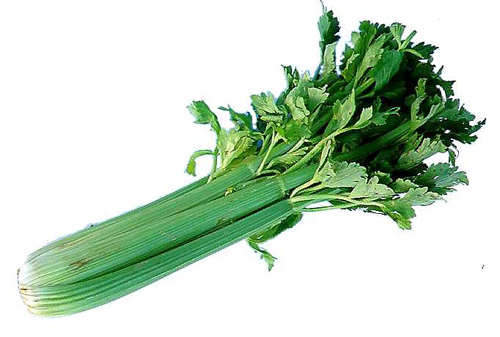Health Benefits of Celery
For such a humble vegetable, celery health benefits are many.
But first have a look at celery’s nutritional highlights:
Celery is an excellent source of vitamin C and fibre.
It’s a very good source of potassium, folic acid, and vitamin B6 and B1.
Celery is a good source of calcium and vitamin B2.
Rich source of dietary sodium.
Note: While it’s true that celery contains more sodium than most vegetables, the sodium is offset by very high levels of potassium. Furthermore, the amount of sodium is not significant even for the most salt-sensitive individuals.
One celery stalk contains approximately 32 milligrams of sodium and 104 milligrams of potassium and only 20 calories as carbohydrate.
Generally, any food that’s good for your body is good for your breath, but celery seems custom made for fighting halitosis.
Most experts believe that the most common cause of bad breath is poor dental hygiene.
In the absence of proper brushing and flossing, food particles on the teeth and the back of the tongue breed pungent bacteria.
Munching on a stalk of celery is helpful in two ways: its roughness helps scrub bacteria from the back of the tongue and its natural fibres assist in cleaning the teeth. It’s like using an edible toothbrush.
In fact, if you ever find yourself without a toothbrush, chomping on a celery stick after a meal or first thing in the morning will do the trick.
With loads of analgesic, anti-inflammatory and diuretic compounds, as well as some calcium blockers, celery seed extracts seem appropriate for treating bladder infections.
Celery seeds are said to improve the quantity and quality of urine and are a useful diuretic for urinary tract infections (UTIs).



